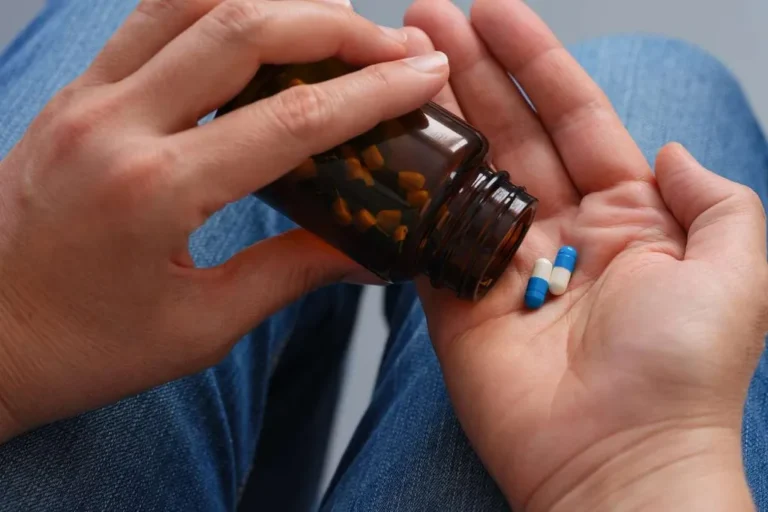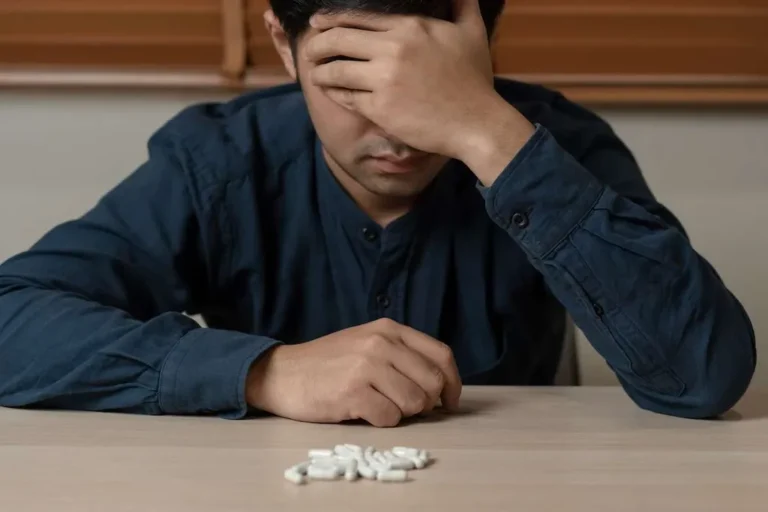Hallucinogen Persisting Perception Disorder: Main HPPD Symptoms

People suffering from hallucinogen persisting perception disorder (HPPD) often fail to recognize its first signs. It affects their mental state and has a lasting impact on health. The condition is accompanied by flashbacks and unpleasant visual experiences that manifest long after consuming drugs. In this guide, we will analyze the meaning of the ailment, consider the main HPPD symptoms and types, and explore possible ways of assisting affected individuals in controlling anxiety, distress, and various unfavorable consequences.
What is HPPD?
The term refers to the condition that typically occurs after the non-medical consumption of hallucinogenic drugs. It’s accompanied by troubling signs that affect the quality of life. People start having vivid recollections of the past or the initial effects caused by the drug.
Choosing a result-yielding healing strategy depends on the HPPD type. The first one is less distressing and easier to control. An individual with such a mild condition notices some untypical manifestations days or months after substance abuse. Type 2 is more dangerous, as it’s accompanied by strong vision disruptions. A patient starts seeing halos or other disturbing hallucinations.
Many people wonder: “How common is HPPD?” According to statistics, 4.2% of people who used hallucinogenic drugs later had HPPD. Additional research is needed to clarify when and under what circumstances HPPD manifests. While this condition is quite rare, it has adverse effects on health. People notice distressing physical sensations, suffer from issues with their vision, or detect unreal smells or sounds.

Take back control of your life and start on the road to recovery now.
What Causes HPPD?
Many individuals who use LSD or other substances like cannabis, MDMA, mescaline, or psilocybin notice sudden hallucinations long after taking them. While there is no conclusive evidence regarding the main reason behind the syndrome, some researchers suggest it is triggered by an environment, which makes it somewhat similar to PTSD.
Deconditioning is another possible reason for HPPD flashbacks. When drugs impact a person’s senses, such experiences might re-occur in the future. If some memories are especially vivid, a person will remember them as recollections.
Here are frequently reported factors provoking HPPD:
- Mental health issues like anxiety and depression heighten the risk of the syndrome, as people suffering from such conditions have difficulties when trying to cope with triggers;
- Continuing cannabis usage intensifies the effects caused by drugs;
- Staying in a dark room after experiencing hallucinations sometimes leads to HPPD;
- Taking specific medicine exacerbating the impact of LSD;
- Frequent intake of hallucinogens often results in strong recollections.
While some patients reported their mental state worsened when they were stressed and tired, others considered disrupted sleep patterns the main reason for flashbacks. In some cases, people were thinking about hallucinations, which triggered HPPD.
Those who increase the daily dose become more tolerant to the effects of a drug. Regular intake, as well as alcohol and substance misuse, worsen the condition. Every person with HPPD should discover what triggers their negative feelings and behaviors to cope with them successfully.
What Does HPPD Look Like?
An inability to recognize HPPD symptoms significantly worsens a person’s health outcomes. The difficulty lies in the fact that they vary depending on the individual. Most people notice mood swings or have problems with their vision. Those with Type 1 report visual disruptions causing them to believe they see something unreal. The Type 2 is characterized by more noticeable effects.
Let’s consider the most widespread vision symptoms:
- Seeing dark floating objects;
- Detecting trails and traces left by objects that move;
- Difficulties with perceiving motion;
- Vivid pseudohallucinations;
- Flashes of light or color;
- Perceiving objects larger or smaller than they are.

Depression-related symptoms are often intensified due to disturbing flashbacks. Besides, the condition of individuals with mental disorders like schizophrenia may worsen as they will stop distinguishing hallucinations from reality. Their inability to control reality causes frequent panic attacks. Confusion, unusual irritability, or migraines are also reported by patients with HPPD.
When looking for obvious symptoms and signs, it’s essential not to disregard such serious issues:
- Difficulties with breathing;
- Sweating;
- Shivering;
- Increased heart rate;
- Nausea or dizziness;
- Chest pain.
Patients with diagnosed psychotic disorders often complain about a strong feeling of unhappiness or intense dread. They cannot cope with their emotions and experience a strong sense of doom.
While discomfort caused by HPPD-related issues is minor for some, in other cases, it may be quite intense. It happens when a patient relives past experiences unwillingly in the present without fully realizing how to stop or control them. They may feel fully disassociated from a situation, making them feel helpless and insignificant. Such unexpected problems happen suddenly and fully disrupt a person’s daily routine.
How to Treat HPPD?
There is no one-fits-all solution when it comes to dealing with HPPD symptoms. Patients must follow the recommendations of a healthcare provider to minimize their impact. If a person suffers from continuing discomfort and hallucinations caused by past drug use, health professionals are likely to use multiple questionnaires and scales to diagnose the condition.
Additional psychiatric and neurological checkups are also necessary. In some cases, patients may be asked to provide information about the medications they are currently using. Besides, health professionals typically try to rule out other causes of hallucinations.
Due to limited research on HPPD treatment strategies, providers are likely to prescribe time-tested medication like clonidine or benzodiazepines to lower anxiety. As some people may experience side effects, it’s necessary to make regular appointments with a doctor to adjust the approach and achieve better results.
Some people can manage low-intensity flashbacks. However, those who are pained by a strong feeling of discomfort must contact health professionals to avoid worsening their state and protect themselves from possible consequences. In addition, a person may choose the following approaches, as they demonstrated high effectiveness in reducing the impact of HPPD:
- Holistic methods;
- Breathing techniques;
- CBT;
- Stress control practices.
Practicing mindfulness, learning how to focus attention on pressing tasks, and embracing lifestyle change are other methods of helping people become healthier.
How to Act During An HPPD Episode
When a person experiences a sudden recollection making it remember the situation when they consumed drugs or had side effects vividly, staying calm is crucial. It’s also helpful to use relaxation techniques to prevent increased anxiety and reduce stress. Follow these steps to minimize the impact of an HPPD episode on your health:
- Practice yoga and relaxation methods;
- Enjoy calming tracks;
- Refrain from driving a vehicle as you may endanger yourself and others;
- Consult a psychiatrist to discover how to deal with stressful memories and interactions.
If traumatic recollections and other HPPD symptoms persist, it’s also necessary to contact a healthcare specialist and discuss everything in detail. This condition requires further research, so it remains unclear whether it can be completely healed. However, based on past cases of successful treatment, doctors may still prescribe some medical drugs to temporarily elevate the symptoms.

This can be a difficult journey, but you don’t have to go it alone. Let us be your guide and provide you the environment needed to regain control of your life and begin the path to recovery.
Final Thoughts
When an individual suddenly starts experiencing strong visual disturbances, has sudden recollections of past situations related to drug usage, or even develops a permanent trip disorder, it’s time to get professional assistance. Enrolling in time-tested treatment programs facilitates diminishing the lasting effects of hallucinatory drugs on health and learning how to deal with triggers.
While it remains unclear what combination of factors causes HPPD, individuals still can increase their awareness of the things related to the sudden manifestation of its symptoms. Trying to avoid getting into situations causing hallucinations and flashbacks is one of the most efficient strategies for dealing with the condition.
Eco Sober Houses understands the importance of staying in a safe environment and helps people with HPPD symptoms discover the inner strength to keep living without substance misuse. It provides housing services for people who have already gone through treatment programs and are looking for a secure space to recuperate and prepare themselves for returning to society. Get in touch with our team today and discover motivation to move toward recovery.




